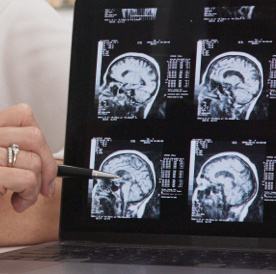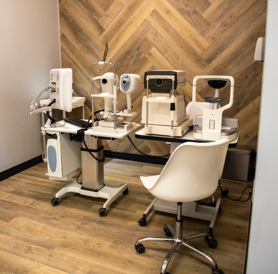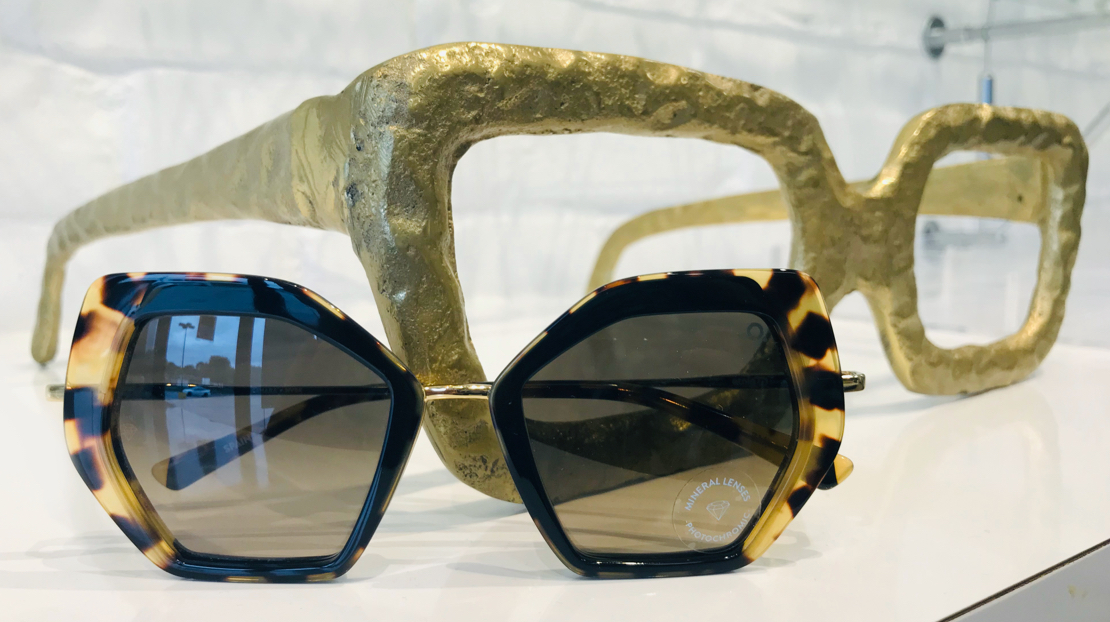Specialty Eye Care for People With Diabetes
Diabetes can impact your eyesight and vision. A diabetes management plan should factor in your vision in order to maintain overall health.
At Bayside Eye Care in Barrie, alongside our comprehensive eye exams, we offer specialized diabetic eye exams to detect diabetic eye disease even before you notice symptoms.
How Diabetes Affects the Eye
Diabetes increases the risk of many eye diseases, including glaucoma, cataracts, and nerve problems that affect the muscles around the eye and the pupil. It can also affect pre-existing eye problems like myopia and hyperopia.
Diabetic Retinopathy
Diabetic retinopathy is a dangerous condition that can occur when high blood sugar damages the delicate blood vessels on the retina. Swelling and weakening of the blood vessels can lead to a lack of oxygen, which may cause vision loss in parts of the eye that can lead to blindness.
There are 4 stages of diabetic retinopathy, ranging from mild to severe. In the earlier stages, damage to the eye may be occurring, though vision may not yet be affected. This is why it’s so crucial to have an annual diabetic eye exam with one of our professionals. Damage cannot be reversed, but further harm and serious vision loss can be prevented with appropriate care.
Symptoms of Diabetes-Related Eye Problems
Signs that diabetes may be affecting your vision should not be ignored. Come in for an exam if you’re experiencing any of the following:
- Occasional double vision
- Blurred vision
- Loss of visual field
- Blind spots
- Flashes and floaters
Additionally, diabetes-related eye problems can be exacerbated by lifestyle factors like smoking, high blood pressure, alcohol use, and pregnancy.
Regular eye care is critical for people with diabetes. Our optometrists will work with you to ensure you have a care plan and exam schedule that suits your needs.
Detecting & Managing Diabetic Eye Disease
At Bayside Eye Care, our specialists use advanced technology to perform diabetic eye exams.
Optical Coherence Tomography (OCT)
Optical coherence tomography (OCT) is a non-invasive imaging procedure we use to take images of the retina. It allows us to look at the individual layers of the retina and check retinal thickness. Optical coherence tomography uses light to achieve a clear, sharp image.
Since diabetes can interfere with the retina’s blood vessels, OCT lets our experts monitor the retina’s health in a way that is effective and painless. Regular imaging gives a baseline to measure your ongoing retinal health.
Retinal Fundus Imaging
Retinal fundus imaging uses a low-power microscope with an attached camera that allows optometrists to take a clear picture of the eye’s interior. This is crucial to view the health of the retina, the optic disc, macula, and fundus.
This technology requires us to dilate the pupil to get a full picture of the inside of the eye. Remember to bring sunglasses to your exam, as the effects of the dilating drops can last a few hours.

Make Bayside Eye Care a Part of Your Diabetes Management Plan
Diabetes-related vision problems can be staved off with proper observation and preventative care. Let our skilled optometrists be a part of your healthcare plan. Book an appointment in Barrie to help your vision stay clear and healthy.
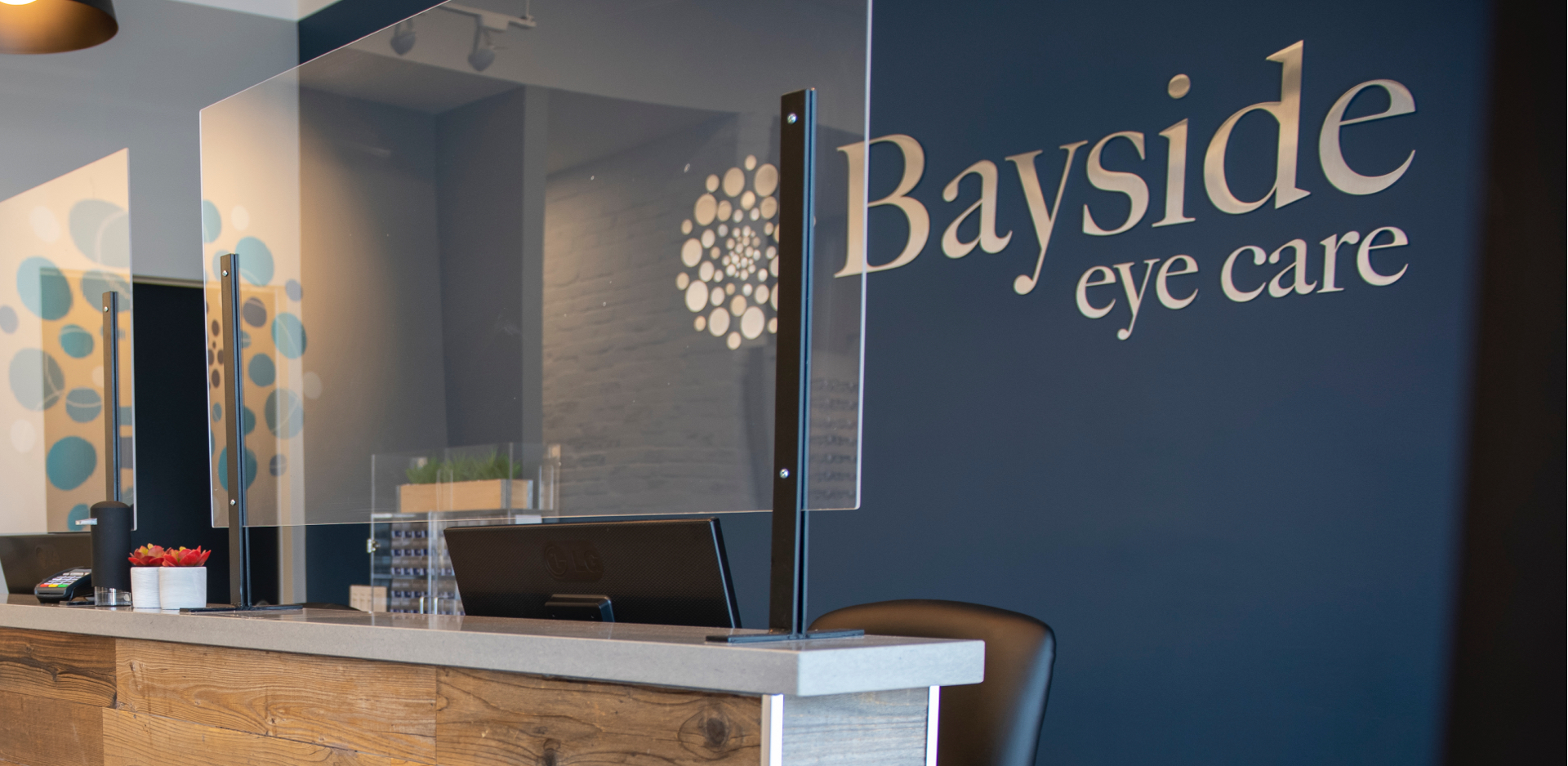
Our Location
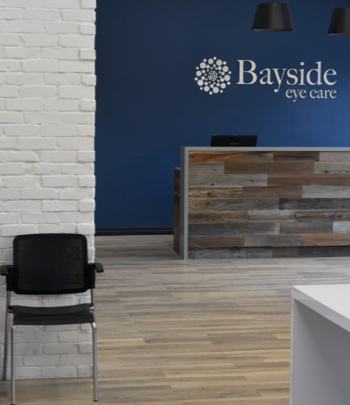
Visit Us
Just off Leacock Drive, find us in the strip mall next to O’Sullivan Animal Hospital.
- Phone: 705-728-3396
- 420 Leacock Drive, Unit I
- Barrie, ON L4N 5G5
Hours of Operation
- Monday: 9:00 AM – 5:00 PM
- Tuesday: 9:00 AM – 5:00 PM
- Wednesday: 9:00 AM – 5:00 PM
- Thursday: 9:00 AM – 5:00 PM
- Friday: 9:00 AM – 3:00 PM
- Saturday: Closed
- Sunday: Closed
Extended hours appointments available by appointment only.



See Our Google Reviews

OUR BLOG
Vision Therapy for Strabismus
Vision TherapyVision therapy is an effective, noninvasive treatment option that helps retrain the eyes and brain to work together more efficiently. […]
How Long Does Eye Strain Last?
Digital Eye StrainDry EyeEye HealthDigital eye strain tends to last for a few hours. In the meantime, it helps to take a break and rest your eyes—try avoiding screens where possible and regularly focusing your eyes at different distances. This gives them a much-needed rest.
[…]
Glaucoma vs Cataracts: What’s the Difference?
Eye ConditionsEye Health Glaucoma and cataracts are two of the most frequent eye issues, but they differ significantly in their causes, symptoms, and treatments.
[…]
Vision Therapy for Strabismus
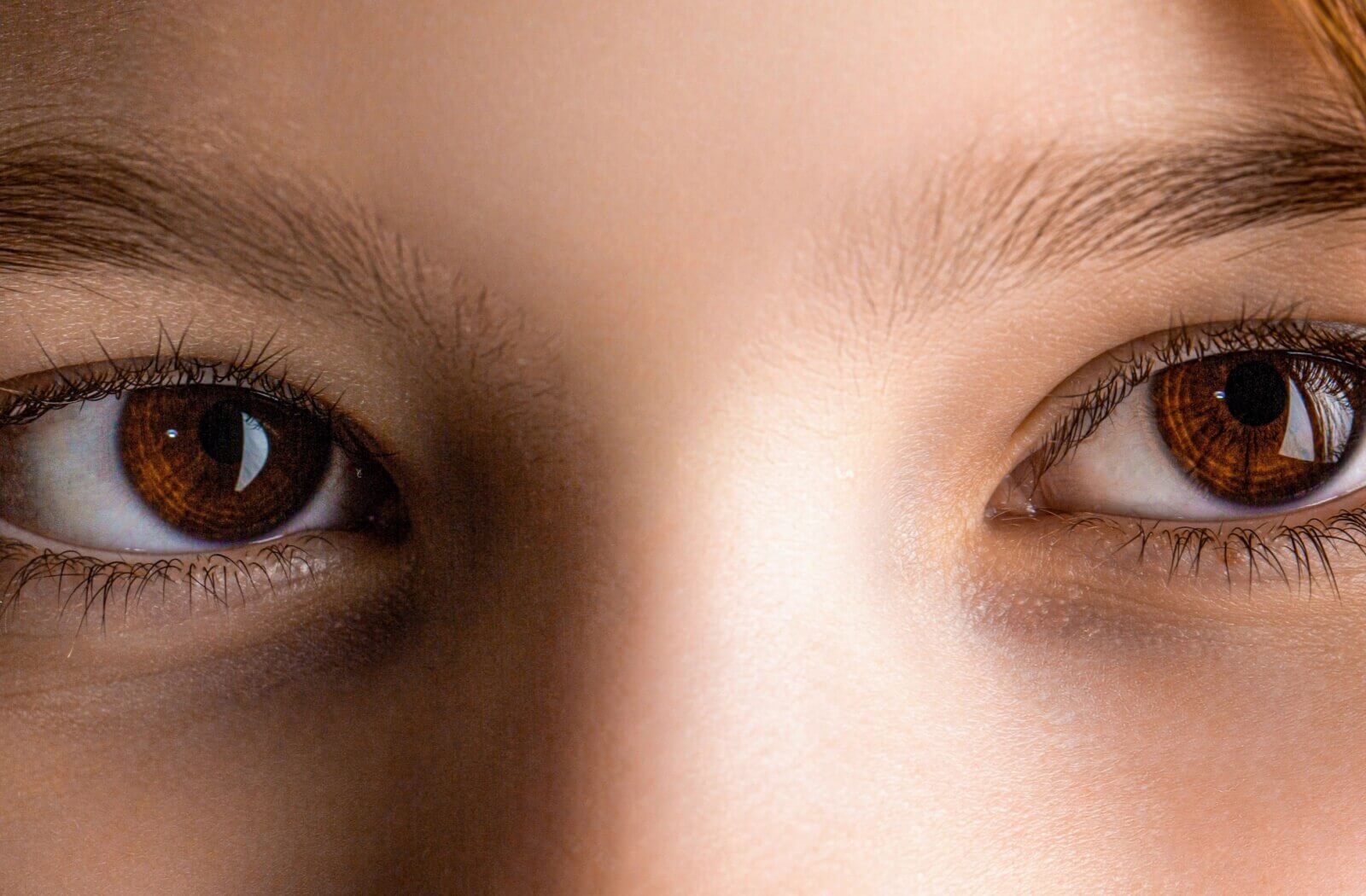
Vision therapy is an effective, noninvasive treatment option that helps retrain the eyes and brain to work together more efficiently. […]
How Long Does Eye Strain Last?

Digital eye strain tends to last for a few hours. In the meantime, it helps to take a break and rest your eyes—try avoiding screens where possible and regularly focusing your eyes at different distances. This gives them a much-needed rest.
[…]
Glaucoma vs Cataracts: What’s the Difference?

Glaucoma and cataracts are two of the most frequent eye issues, but they differ significantly in their causes, symptoms, and treatments.
[…]



